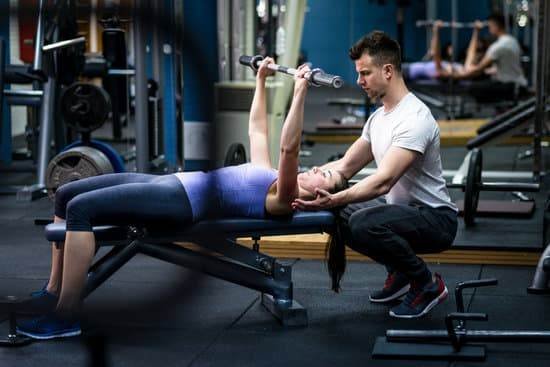Introduction
A Personal Trainer is an individual certified to provide professional guidance and instruction on exercise, health, and fitness. They have training in nutrition, exercise physiology, biomechanics, anatomy, kinesiology, and other disciplines related to personal health. Working with a Personal Trainer can help you reach your fitness goals faster and easier.
The benefits of working with a Personal Trainer are vast. A qualified Personal Trainer will first assess your current physical condition and suggest suitable exercises to meet your goals. They will also help develop an effective and customized workout routine that works for you. Your trainer will motivate you throughout your exercise regimen and be able to answer any questions or concerns about your workout program. Furthermore, they will provide feedback regarding your progress so that you stay motivated and on track toward achieving your desired results. Additionally, they can offer nutritional counseling to help you make healthier choices when it comes to food intake as part of achieving overall fitness goals. Lastly, they offer personalized support during workouts and provide customized solutions if you’re feeling stuck or uncertain about how to move forward.
An Overview of Different Types of Personal Trainers
Personal trainers are fitness experts who help individuals achieve their physical goals. Through personalized exercise programs and instruction, personal trainers assess a client’s current fitness level and create customized plans designed to maximize health, performance, and overall well-being. These professionals have the knowledge and expertise necessary to develop sound strategies for helping their clients reach their individualized objectives.
There are several different types of personal trainers available, depending on an individual’s specific needs. Generalists are generalists—personal trainers who specialize in overall health and wellness. Sports-specific trainers focus on conditioning for athletes looking to improve their game, while rehabilitative trainers provide therapeutic training for individuals recovering from an illness or injury. Strength-and-conditioning coaches specialize in developing strength in all aspects including: agility, balance, coordination, speed, power, mobility, stability and endurance. Lastly, lifestyle coaches work with clients on ensuring that they have a healthy relationship with food as well as other life decisions such lifestyle habits like sleeping schedules/routines or stress management techniques as part of an overall fitness plan. Each type of trainer brings unique qualifications to the table when it comes to finding the best fit for each client’s specific needs.
Factors to Consider When Choosing a Personal Trainer
When selecting a personal trainer, there are several important factors to consider. The most important is the experience and qualifications of the trainer. Look for trainers with extensive training, certifications, and experience in developing targeted fitness plans. Additionally, it’s a good idea to determine what type of training style your prospective personal trainer uses. Some prefer using more traditional weight lifting techniques while others might focus on aerobic exercise or even nutrition guidance.
It is also important to make sure that you feel comfortable with the individual who will be coaching you so be sure to ask about their background and qualifications. Additionally, you should determine if your potential trainer has access to specialized equipment or facilities that may help improve your workout performance and results. Most importantly, scheduling should be taken into account as well since working out consistently with a regular routine is key to achieve success in your goals. Lastly, discussing fees upfront can help assure that there are no financial misunderstandings when working with your chosen personal trainer. With all these factors taken into consideration you’ll be able to find just the right person for the job!
Developing a Working Relationship With Your Personal Trainer
A personal trainer is a fitness professional who assists clients in reaching their fitness goals. They typically specialize in different types of exercise such as strength training, weight-lifting, cardiovascular workouts, flexibility exercises, and nutrition coaching. It is important to establish a good working relationship with your personal trainer so that you can get the best results out of your workout routine. The most effective way to do that is through communication and collaboration.
Communication between you and your personal trainer should be open and transparent from the initial meeting. During this initial session, set aside some time for both of you to discuss expectations for outcomes, commitment levels for training sessions, diet plans, what types of activities will be right for you, as well as regular performance reviews. Once you have these guidelines in place it’s important to provide feedback regularly so you can stay on track with your goals. Additionally, if any unresolved issues arise as you continue with your program then don’t hesitate to bring it up with your trainer because resolving issues quickly ensures both of you are on the same page throughout the process.
Collaboration is also important when working with a personal trainer. When you work together both parties should be focused on helping each other achieve success by taking advantage of each others strengths and resources. This means that if there are obstacles along the way that are preventing progress yon both need to brainstorm solutions together for how to overcome them quickly and efficiently so you can remain focused on moving forward towards achieving your goals.
Tips for Getting the Most Out of Your Personal Training Sessions
1. Come prepared: Before each session, make sure to drink plenty of water and arrive in clothing that will allow you to move freely. This way, your personal trainer can get you started right away focusing on the exercises and avoiding any potential health risks like overheating or dehydration.
2. Be honest and open: Personal trainers have worked with very different types of people, so don’t be afraid to tell them about any existing injuries or concerns you have regarding your health or body. That way, your trainer can tailor the exercises specifically with you in mind.
3. Set realistic goals: Before beginning your sessions, establish some achievable goals for yourself in terms of exercise selection and progression as well as other lifestyle changes such as dieting or nutrition. This will help motivate you to stay on track since it is much easier to stay motivated when there are clear objectives set out in front of you.
4. Focus while exercising: Make sure to give 100% focus while lifting weights or performing cardio exercises during your session. By doing this, not only will each activity be completed properly but also helps ensure you have an enjoyable experience and make more progress towards reaching your goals in a shorter amount of time.
5. Listen to feedback: Don’t forget that having a personal trainer means having an expert there to advise and guide you throughout the journey – which means listening to their advice! Taking their critiques into account can make the difference between ‘just okay’ results and amazing ones—so pay attention when they speak up!
Safety and Professionalism
When choosing a personal trainer, it is important to make sure they are certified and have an in-depth understanding of proper exercise techniques. A certified personal trainer should have taken courses that focus on safety, strength training and nutrition. Look for evidence that the trainer holds CPR and first aid certifications as well as any additional certifications they may have achieved such as those from the American College of Sports Medicine or the National Strength and Conditioning Association. By doing this, you can be assured your trainer is aware of how to safely train clients and how to properly introduce movements with good form.
In addition to possessing knowledge in several areas related to health & fitness, a reputable personal trainer should have a level of professionalism. The question ‘What are your expectations?’ is an important one for both trainers and clients. Questions such as ‘What times will sessions be available?’, ‘How do payment options work?’, or even ‘What can I expect from training with you?’ should all be addressed clearly beforehand so there are not any surprises further down the line. Additionally, ask about their code of conduct for themselves and for their clients; this establishes boundaries to ensure a respectful relationship between trainer and client which then adds to the overall experience during sessions.
Conclusion
Having a personal trainer can be one of the best investments you can make for your health and well-being. With their expertise and knowledge, they can help you reach your fitness goals and unlock your potential. They provide guidance to help improve your form and technique and lead you through workouts that are tailored to meet your individual needs. A qualified personal trainer will also provide motivation and encouragement to keep you on track with your health goals. With their support, you can stay consistent with effective training and nutrition plans to reach an improved level of physical activity, better body composition and greater overall health. Whether it’s tracking progress or helping establish new habits, having a certified professional dedicated to your success is a key factor in achieving the results you want. Unlocking the power within yourself starts by trusting in the dedication of a personal trainer who is eager to help you become the best version of yourself!

Passionate about providing useful information to anyone with an interest in the field of Personal Training, I strive to pass on to our readers quality information and to answer any questions about Personal Trainers, the work they do and how to become one.





